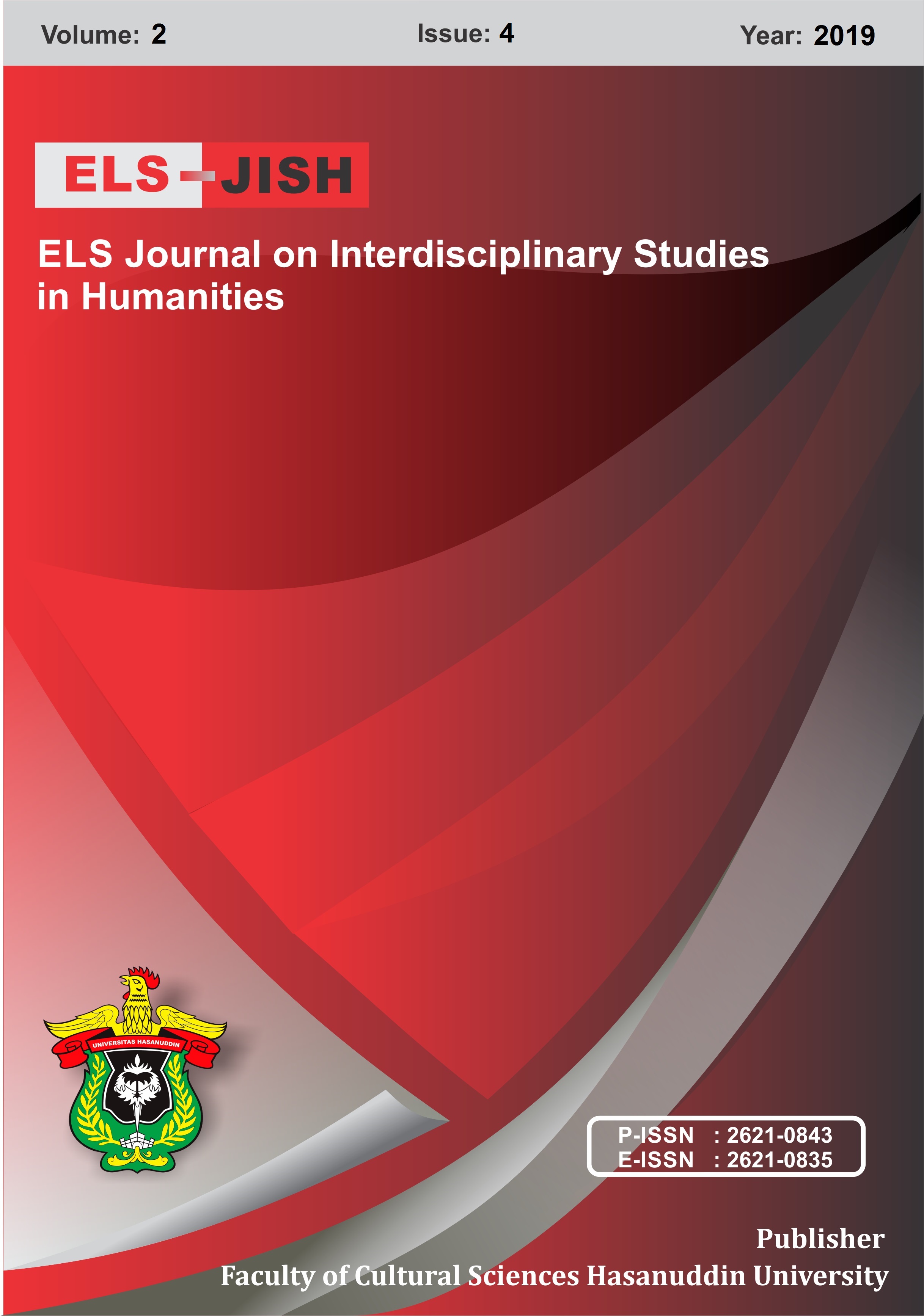Assertive Illocutionary Act Adapted in Donald Trump’s Political Speech: A Pragmatic Study
DOI:
https://doi.org/10.34050/els-jish.v2i4.8354Keywords:
Pragmatics, Speech acts, Illocutionary acts, AssertiveAbstract
This research is intended to discuss the illocutionary acts used in a speech mainly assertive. The writer attempts to analyze the categories of assertive illocutionary act occurs in the utterances of Donald Trump’s political speech in last America’s general election. This is a case study that employed a qualitative method with a descriptive approach. The writer uses Ancont software to classify the data. The function of this software is to observe the frequent words occur in the data. Then, it shows that the total number of words that occurred in Donald Trump’s speech is 3046 words. Through those numbers, there are 901 types of words. However, the data used is only the open classes instead of the closed class words or grammatical category. After reducing the data, the five frequent words which are categorized as an open class appeared are ‘job’, ‘is’, ‘new’, ‘American’, and ‘are’. In this case, the data are analyzed based on the frequents words and the writer also reduces the data which are not categorized as assertive illocutionary acts. From the data analysis, it reveals that the categories of assertive illocutionary acts mostly appeared in Donald Trump’s political speech are a statement of fact and assertion. Then, the dominant category used in the speech is a statement of fact containing a convincing. It can be concluded that most of the utterances used by Donald Trump are, besides attempting to represent himself, to convince the citizens supported by some facts about the issue that he believes to be the case in order to establish a positive perspective toward his arguments.Downloads
Download data is not yet available.
Downloads
Published
2019-12-13
How to Cite
Ramadhani, R., Indrayani, L. M., & Soemantri, Y. S. (2019). Assertive Illocutionary Act Adapted in Donald Trump’s Political Speech: A Pragmatic Study. ELS Journal on Interdisciplinary Studies in Humanities, 2(4), 493-498. https://doi.org/10.34050/els-jish.v2i4.8354
Issue
Section
Articles

















